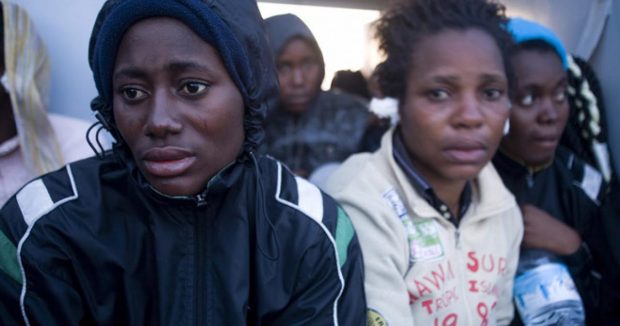EU denies all accusations of abuse to migrants in Libya

An EU commission spokesperson on Monday (11 September) told reporters in Brussels that its work with the UN and its affiliated agencies on the ground in Libya is part of a greater effort to protect migrants and provide them with access to basic medial care.
“We are working with the UN, extremely closely, with different agencies, precisely again to protect the migrants in Libya,” said Catherine Ray, who speaks on the behalf of the EU’s diplomatic arm, the European External Action Service (EEAS).
She noted that the agencies are helping people to return to their home countries where they are aided with further assistance. The EU is also training the Libyan coastguard on human rights, she noted.
The commission’s defence of the EU’s policy in Libya on Monday follows a scathing rebuke from the UN’s high commissioner for human rights, Zeid Ra’ad Al Hussein.
In a statement released on Friday (8 September), Al Hussein said the EU’s approach of apprehending migrants inside territorial waters to have them returned to Libya is a clear breach of the international law prohibition of ‘non-refoulement’.
“Like the militias onshore, coastguards also sometimes beat, rob and even shoot the migrants they intercept,” he said.
Al Hussein said that a mini-summit in Paris last month between a half dozen European and African leaders was aimed at stopping people from leaving towards Europe.
“Perhaps the most worrying omission in the Paris document, is a failure to draw up a detailed blueprint to tackle the hidden human calamity that continues to take place within Libya, and along its coast,” he said.
Similar comments were issued by the president of Doctors without Borders who last week accused the EU of condoning torture, given the widespread rape, beatings, and abuse that people endure at the hands of detention centre guards. EU states in mid-July agreed to introduce restrictions on the export of rubber boats and outboard motors to Libya. The move follows a crackdown on such boats by the EU’s naval operation, Sophia, forcing people to use less-seaworthy alternatives.
These initiatives were then followed by a €46-million programme to enforce the Libyan coastguard in maritime surveillance and rescue. The EU plans also include a study to create a special search and rescue agency within the Libyan ministry of interior, as well as a coordination centre under the ministry of defence. But an internal report by the EU’s own mission in Libya, EUbam, provides a bleak assessment of both government ministries.
It noted, among other things, that the ministry of interior has been infiltrated by “militias and religiously motivated stakeholders”.
It said the ministry is dysfunctional and resorts to asking for donations in-kind and private funding from militia groups in order to operate. The report also noted that such tactics undermine its authority and independence. Some of the outstanding issues may have been resolved, given that the report was dated from January of this year. But a lack of oversight in a country crippled by conflict, where some 1,500 armed militia groups roam with relative ease, has cast a long shadow over the EU’s stated efforts in helping people attempting to leave.
(Source: EUObserver)
How to submit an Op-Ed: Libyan Express accepts opinion articles on a wide range of topics. Submissions may be sent to oped@libyanexpress.com. Please include ‘Op-Ed’ in the subject line.
- Analysis: Trump’s presidential campaign and its implications - November 17, 2024
- Tunisian FM: Diplomatic presence ‘falls short of needs - November 17, 2024
- Lebanese Speaker: Ceasefire with Israel ‘more likely than not’ - November 17, 2024


